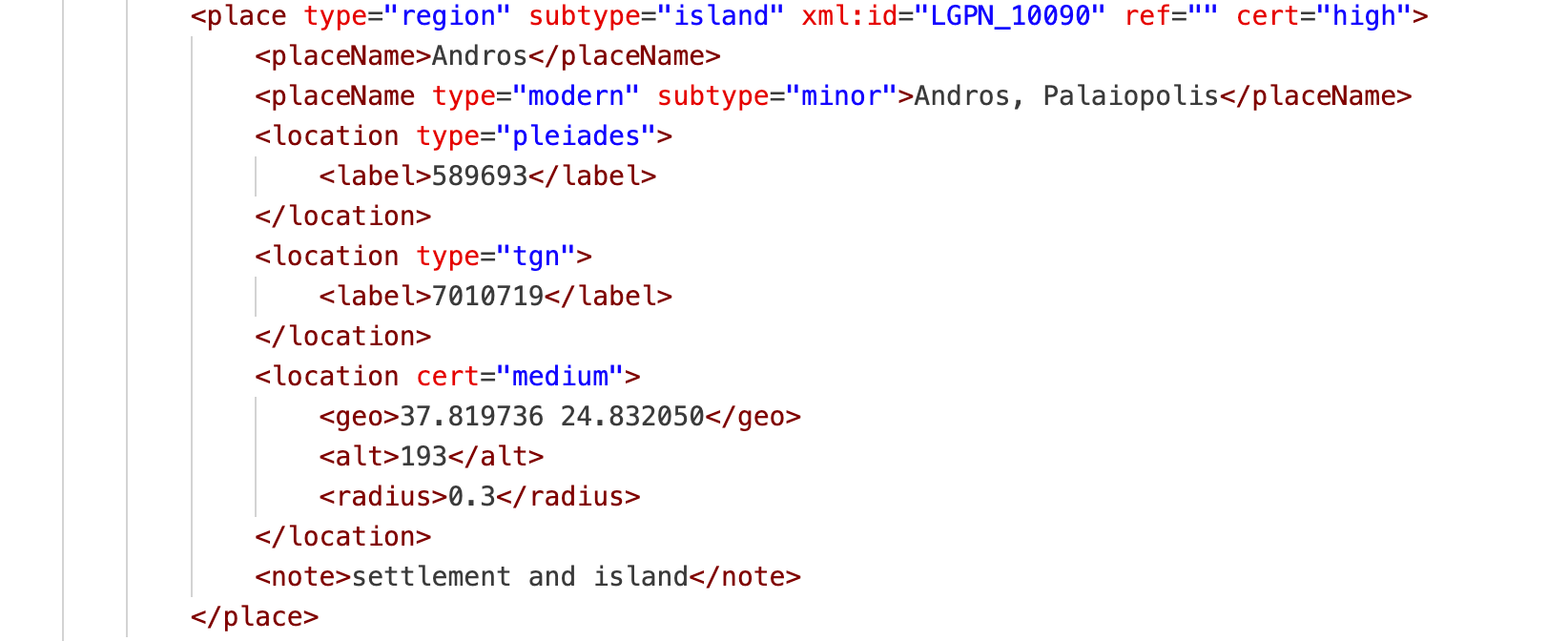The Lexicon of Greek Personal Names
The Lexicon of Greek Personal Names was established in 1972 as a Major Research Project of the British Academy, at the suggestion of Peter Marshall Fraser, Fellow of All Souls College, Oxford and a Fellow of the Academy. On acceptance of the proposal, Fraser was appointed Director of the project and Chairman of an advisory committee. For the development of the project see 'The Lexicon of Greek Personal Names: A Brief history', in LGPN V.C. xxxi-xxxv. From the start, LGPN involved international collaboration, scholars from many countries being invited to contribute material and advice; but the Editors and central staff have always worked in Oxford. In October 1996, the project became part of Oxford University, under the aegis of the Faculty of Literae Humaniores, now the Faculty of Classics. It is a member of the group of Oxford Classics Research Projects.
Purpose and Scope
To collect and publish with documentation all known ancient Greek personal names (including non-Greek names recorded in Greek, and Greek names in Latin), drawn from all available sources (literature, inscriptions, graffiti, papyri, coins, vases and other artefacts), within the period from the earliest Greek written records, down to, approximately, the sixth century A.D.
The work thus starts with the period of epichoric scripts, embraces the classical and hellenistic periods of Greek history, following dialect and the development of koine, and continues through the period of the Roman Empire when Greek nomenclature underwent changes as a result of Roman rule, and religious, social and other factors.
Excluded names include mythological and heroic names, Mycenaean names, later Byzantine names and geographical names.
Eight volumes cover the whole Greek world from Italy and Sicily to Anatolia; a ninth volume on Syria, Arabia and regions further East will soon be in press, and two more on Egypt are planned (one already in preparation) to complete the series
Funding
The project receives funding from the Arts and Humanities Research Council, the British Academy, the Academy of Athens.
Licence

This work is licensed under a Creative Commons Attribution 4.0 International Licence.
You are free to:
- Share — copy and redistribute the material in any medium or format
- Adapt — remix, transform, and build upon the material for any purpose.
Under the following terms:
- Attribution — You must give appropriate credit, provide a link to the license, and indicate if changes were made. You may do so in any reasonable manner, but not in any way that suggests the licensor endorses you or your use.
- No additional restrictions — You may not apply legal terms or technological measures that legally restrict others from doing anything the license permits.
How to cite
Project team
Technical foundations
All LGPN data is encoded in accordance with the Guidelines of the Text Encoding Initiative, in TEI/XML format and stored in eXist-db, a native XML database and application framework. The user interface has been built by JinnTec (formerly eXist Solutions) on the foundation of TEI Publisher, a publishing toolbox for scholarly editions, lexicons and other textual resources. Both eXist and TEI Publisher are Open Source Software, licensed under the LGPL. Likewise TEI is an Open Source standard, popular in textual studies and Digital Humanities at large.
LGPN exposes a programmatic API conformant to the OpenAPI Specification
Datasets
LGPN consists of several datasets, three of which constitute the core of this particular resource.
Persons
The main body of data is comprised of documents in TEI/XML format, one file for each person. These files are organized in collections by the LGPN volume number, so V1, V2 and so on, all the way up to V5c. Data from the forthcoming volume VI will be added after its publication in print. Available data for Egypt, currently in preparation is not a part of the main LGPN collection at this time, but can be consulted separately.
The XML code will look similar to the example below:

Places
Each of the individuals is linked to one or more places. Information about places is stored in a separate data package but, same as for persons, in TEI. Information collected includes variants of the name and type of the place: whether a settlement, a region or perhaps an island or a deme. Geographical coordinates and links to other place catalogues are provided where available at the time of preparation of the volume.
The XML code for a place will look similar to the example below:

Names
Each name of an individual is linked to its base form. A list of these forms is compiled with their "equivalents" in various conventions, including Latin transliteration.
This is only an auxiliary list, which may in time be superseded. Elaborate information on names can be found in the LGPN-Ling database.
The XML code for a name will look similar to the example below:
